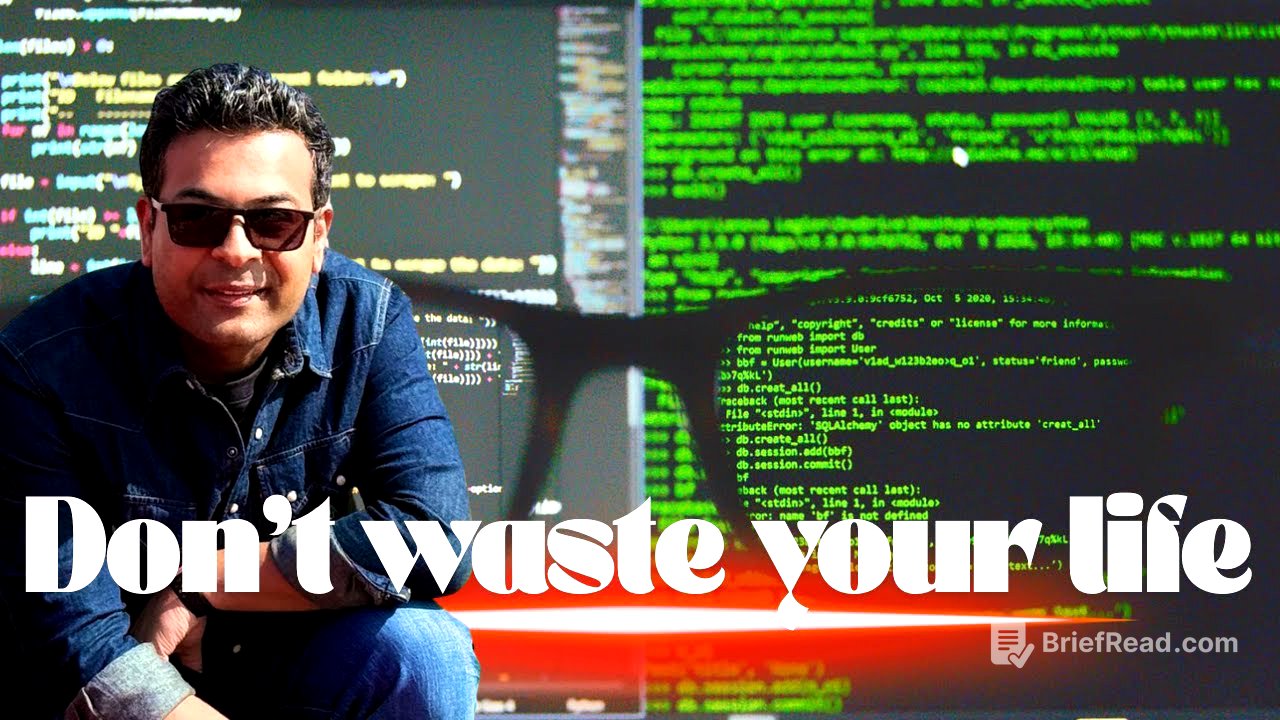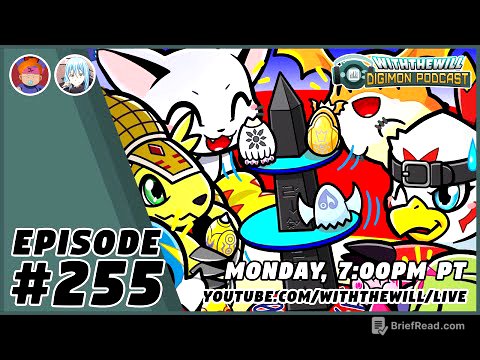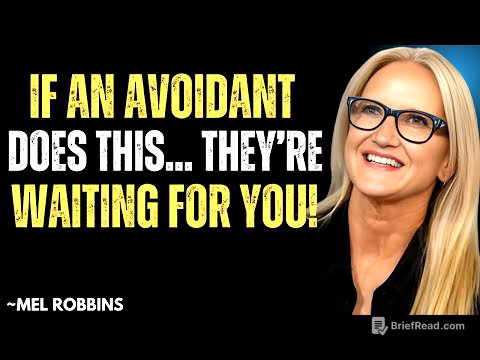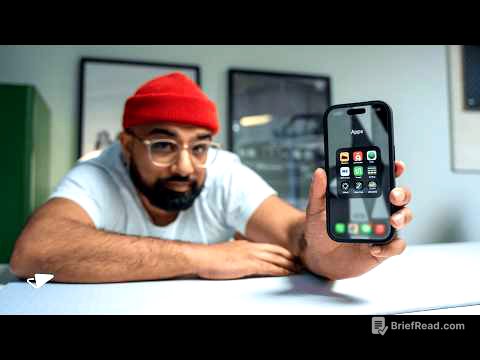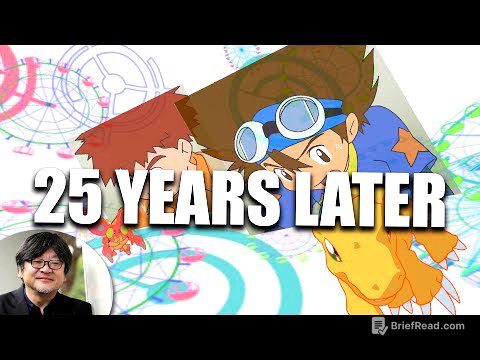TLDR;
This video shares seven key career lessons learned over 17 years in the tech industry, aimed at accelerating career growth and reducing stress. It challenges common myths and mental blocks, emphasizing practical application, continuous learning, problem-solving, and sustainable habits.
- Apply for jobs even if you only meet 60% of the requirements.
- Master the process of learning rather than just specific tools.
- Aim for professional competence across multiple skills instead of perfection in one.
- Take action before feeling fully ready.
- Develop problem-solving and communication skills alongside technical abilities.
- Focus on delivering business value rather than perfect code.
- Prioritize sustainable habits to prevent burnout and ensure long-term career success.
Introduction [0:00]
The video introduces a departure from the channel's usual technical content (AWS, data engineering, SQL, ETL) to share career lessons acquired over 17 years in the tech industry. These lessons are presented as insights that could have saved the speaker from struggles, self-doubt, missed opportunities, and mistakes throughout their career at companies like Accenture, Twitter, American Express, Royal Bank of Scotland and Amazon. The aim is to help viewers avoid common pitfalls and accelerate their career paths with less stress.
Point 1 - Apply when you are 60% qualified [1:15]
The first point addresses the myth that one needs to know everything before applying for a job. The speaker argues that if you match at least 60% of a job description, you should apply. Many people spend excessive time preparing instead of applying, even when they have relevant experience. Applying gives you a chance, while not applying guarantees no opportunity. The speaker shares a personal example of getting a lead role despite lacking expertise in certain big data technologies, learning them on the job and subsequently getting promoted. Companies often list desired skills rather than strict requirements, seeking candidates who can solve problems and learn quickly.
Point 2 - Master the process of learning itself [3:22]
The second key lesson is to master the process of learning rather than focusing solely on specific tools. In data engineering, tools change rapidly, but the fundamentals and the process of learning remain constant. The speaker shares experiences from migration projects where they only knew one side of the technology but learned the other half on the job by applying core concepts. Understanding ETL concepts deeply allows you to adapt to different ETL tools. Similarly, understanding databases fundamentally allows you to learn any database. Focus on the "why" behind the "how" to build adaptability, which is a crucial superpower in technology.
Point 3 - Aim for professionally competent [5:55]
The third point addresses the myth of needing to be perfect before moving forward, arguing that perfectionism is a career killer in tech. While you are trying to master one skill, others with "good enough" skills are getting promoted because they possess a broader range of abilities. The job market rewards versatile problem solvers over narrow specialists. Aim to be professionally competent in multiple areas, such as coding, understanding business requirements, architecting solutions, and communicating technical concepts to non-technical people. It's better to be good enough to solve the problem at hand and learn more when needed, as delivering value is more important than writing perfect code.
Point 4 - Take actions before you feel ready [7:35]
The fourth lesson emphasizes that you will never feel fully ready, and that's okay. The speaker shares that they turned down interview opportunities for years, waiting for a moment of complete confidence that never came. Confidence comes after competence, built by doing things you are unsure about. A story from early in their career at Accenture illustrates how they received back-to-back promotions by communicating confidently, raising concerns, challenging seniors, and taking ownership of problems, even when unsure of the solutions. The people who advance are those comfortable being uncomfortable, so take action, apply for stretch roles, and the confidence will follow.
Point 5 - Develop problem solving skills [10:00]
The fifth point highlights that problem-solving and communication skills are more important than technical skills for career advancement. While technical skills get you in the door, the ability to solve problems and communicate effectively leads to promotions. The speaker realized that writing elegant code is less important than solving the right problem. They share an example from Accenture where their ability to translate between the technical team and business stakeholders was highly valued. Asking the right questions, raising concerns, and challenging approaches demonstrate business acumen, leadership thinking, and communication skills. Technical skills are table stakes, but the ability to think beyond the code, understand the bigger picture, and take ownership of outcomes differentiates you.
Point 6 - Code is just to serve the business [12:35]
The sixth lesson is that your code serves the business, not the other way around. The speaker emphasizes that while good code matters, it is a means to an end, not the end itself. Companies care more about the business value your work brings than the elegance of your code. Focus on delivering solutions that move the business forward, ensuring your code works, is reliable, maintainable, and scalable. Write clean, maintainable code, but don't let perfectionism paralyze you. Your career will be judged on the problems you solve and the value you create, not the elegance of your individual code files.
Point 7 - Sustainable success requires sustainable habits [14:20]
The final lesson addresses burnout, emphasizing that it is a career killer and preventable. The speaker shares that in their early years, they wore exhaustion like a medal, working long hours and weekends, but realized that burnout made them less productive and prone to mistakes. Sustainable careers are built on consistency, not sprints. Manage your energy like a precious resource by setting boundaries, taking vacation days, saying no to non-essential requests, and investing in your physical and mental health. Protect your mental health to have a long, successful, and fulfilling career, especially in technology where careers can span decades.
Recap + Advice [16:35]
The video concludes with a recap of the seven key takeaways: apply when 60% qualified, master the process of learning, aim for professional competence, take action before feeling ready, develop problem-solving and communication skills, focus on delivering business value, and prioritize sustainable habits. The speaker advises viewers to avoid the mistakes they made and emphasizes that a career is about how you think, adapt, communicate, and add value. The final message is to stop waiting and start doing, as you are more ready than you think.
